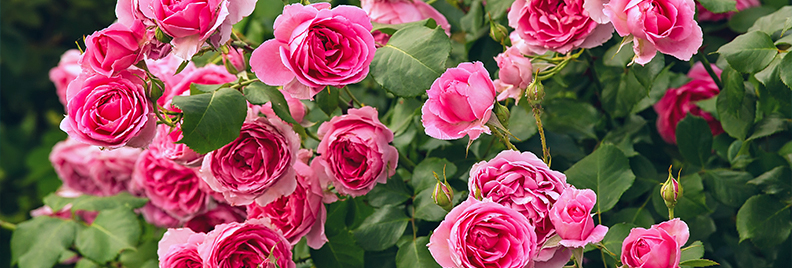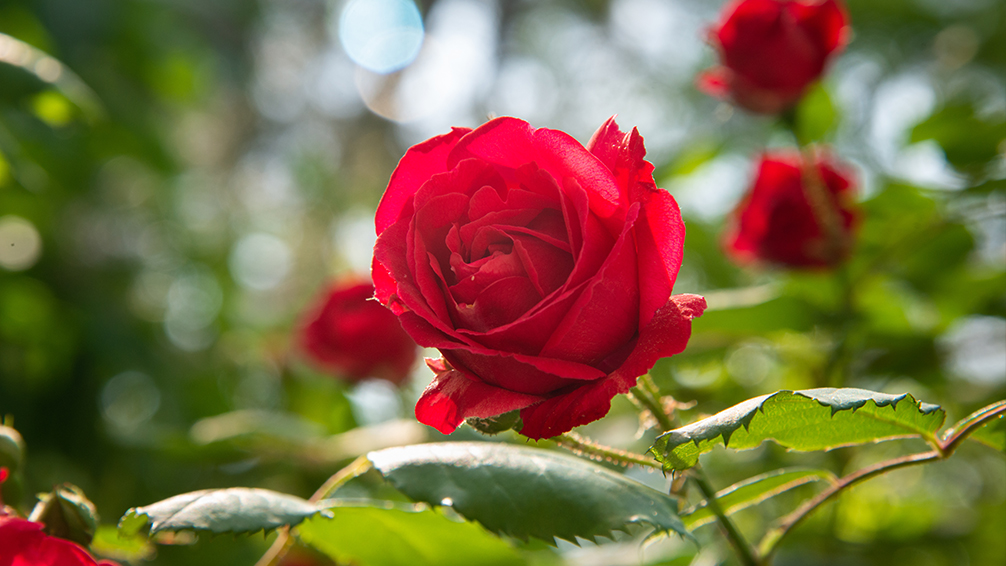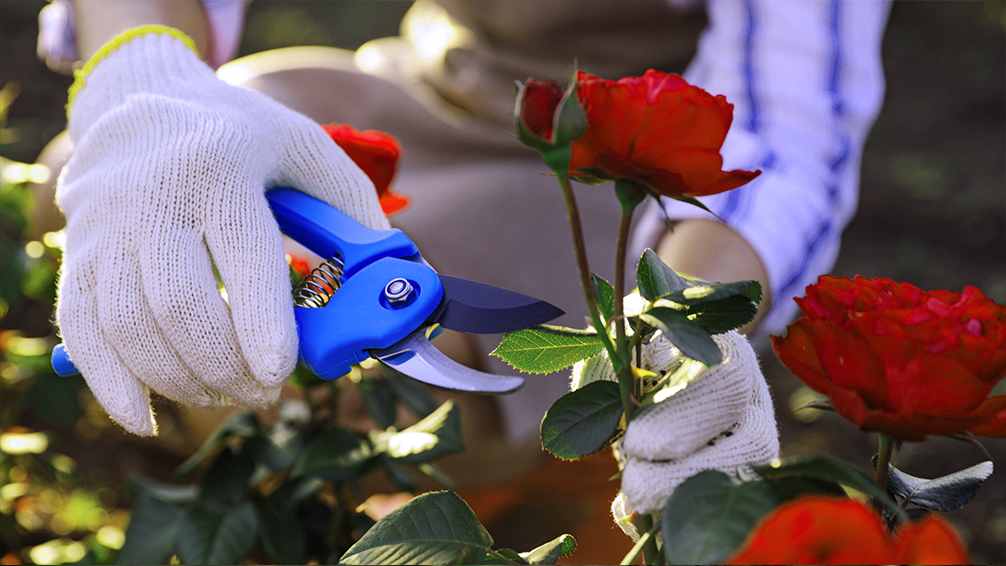
How to Care For Roses Outdoors In Houston
Caring For Roses: The 4 Basics
Controlling Rose Pests & Diseases
We’ve been getting a lot of questions at the nursery about how to care for roses outdoors, and really, we can’t blame you. Roses are kind of a huge deal. They’re basically the Marilyn Monroe of flowers — the ultimate iconic beauty, but with a bit of a reputation for being a diva. They’re sensitive to changes in their surroundings, and good soil, light, and moisture conditions are necessary to keep them blooming beautifully. If you’re eager to glam up your yard with some romantic, dramatic rose bushes, consider these four factors before you go ahead with planting.
Caring For Roses: The 4 Basics
Just like any Hollywood starlet, roses need some upkeep and maintenance to keep them looking red carpet-ready. All things considered, they’re worth the extra effort when the end result transforms your yard into a straight-up masterpiece. Here’s how to care for roses outdoors in Houston for a show-stopping backyard landscape! Warning: may cause excessive swooning and stomach butterflies.
Preparing the soil is the most important step in your success with roses. If building a new bed, purchase rose soil. If you are adding to an existing bed, amend the soil with Nature’s Way Leaf Mold compost.
After your bed is built or your site is amended, dig your hole and add a slow release starter fertilizer, our favorite id MicroLife Ultimate 8-4-6. This will ensure the roots are able to access nutrients easily during establishment.
Next you will set your roses in and backfill the soil around them. Topdress them with a hardwood shredded mulch or pine needles and water them in with a root stimulator like Carl Pool Root Activator.
Just like Marilyn in “Some Like It Hot,” roses don’t mind a little heat — they love warm temperatures and several hours of direct sunlight every day. Four hours daily is the absolute minimum, so try to put them in a spot that isn’t shaded by trees or walls for most of the day. Sometimes they can get a bit worn out from scorching temperatures, so if you can find that sweet spot in the yard that gets full sun in the morning, and a break from the sun in the afternoon, then you’re golden.

For the first year after planting your roses, you should water them a bit more than usual to help their roots establish. A few inches of mulch across the soil surface will help to retain that moisture and prevent it from immediately evaporating in the bright sun. The amount you should water them varies on the season and the soil. Here’s a little breakdown of how often to water, but remember to know how your soil drains, drains fast = water more, drains slow = water less:
- October to February: Water needs decrease in the Houston area in Fall and Winter. Make sure to only water established plants if we have had an extended period without rainfall. If you have a newly planted rose, water once or twice a week but only if we aren’t getting any rainfall. Poor drainage and excessive moisture can waterlog the roots of your rose bush—and that’s bad news!
- March to May: Water newly planted roses every three days, and older, established roses every week. If it gets super hot and you go a long time without rain, you should water them a little extra.
- June to September: Newly planted roses should get a drink every two days, and established roses should be watered every week. Pay close attention to the blooms during this stage, because if they start looking a little tired and wilted, that’s a sign that they’re thirsty and need a little extra spritz.
There are many different varieties of roses, and the amount of water they need varies depending on the type. Generally, we find that shrub roses need less water at a time, whereas standard, climbing, and rambling roses need heavier/ deeper watering each time. Always water the soil directly at the base of the rose bush, avoiding contact with leaves and petals—this helps prevent fungus and disease from developing. Roses are delicate, so don’t blast them with the power washer! Take it easy and pour from a watering can or use the hose on a low setting.

Most shrub roses (excluding varieties that bloom in the spring) should be pruned back right around now or until late winter — March at the absolute latest. For the year following when your roses have first flowered, trim back the flower shoots by up to 5 inches, and nip off any long branches that are awkwardly jutting out from the rest. Remove any dying, diseased, or damaged stems before plucking off the remaining old foliage. The dead stuff can carry bacteria that will hang out until the following year, ready to cramp your roses’ style.
The following year, repeat this process but cut back the branches by about one-third this time. For each subsequent year, you can prune more if you want to keep it more compact, or you can even cut it back less if you’d prefer a taller shrub. Just remember to pull all that old foliage off each time, to prevent disease and to make room for a fresh batch of leaves.

Well-draining, fertile soil is an absolute must for growing roses. That’s why lots of folks like to grow them in raised garden beds. This allows them to easily mix plenty of compost and nutrient-rich organic matter into some loose, fresh, loose soils, so less upkeep is required later. Compacted soils don’t drain well, and this won’t bode well for rose roots. Applying fertilizer helps to keep the flow of nutrients consistent, and in our hot, dry climate, it’s a good idea to fertilize three times per year: once in late February, once in May, and one last time in mid-August. Look for a slow release organic fertilizer that contains just the right balance of macronutrients for these finicky flowers.
Controlling Rose Pests & Diseases
Roses aren’t immune to pests and disease, so it’s a good idea to keep an eye on them and monitor any changes in foliage color or telltale signs of infestation. Aphids particularly love roses, so you should spray them with an organic pesticide as soon as you see them. You can pick some up from our garden center.
You can also purchase anti-fungal sprays to help combat diseases like rust, black spot, and powdery mildew. If significant portions of the plant are infected, prune off all affected pieces and dispose of them safely, wiping the blades of your pruning shears with rubbing alcohol between each cut.

There are so many different colors and varieties to choose from, so if you have a favorite color you’d love to include in your landscape design, visit us at the greenhouse and we’ll help you pick out the perfect contender. If you’re open to ideas, we’ll be happy to help you find some unique varieties to create a custom garden display that will totally take your breath away! We love helping beautify landscapes, and roses are a guaranteed way to level up your garden’s star power.
